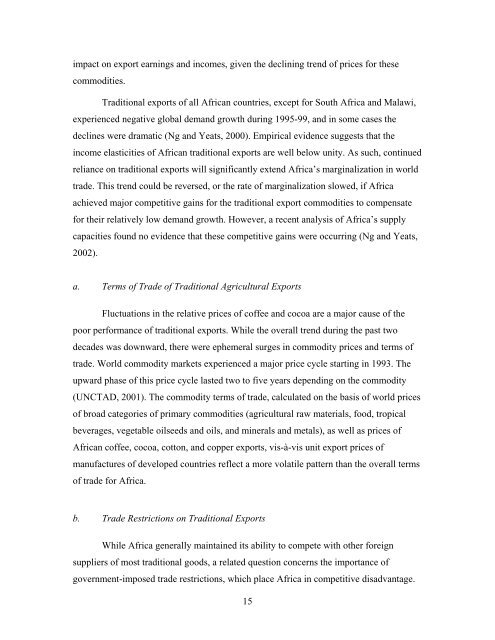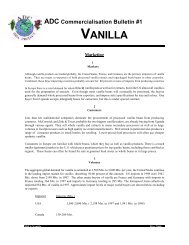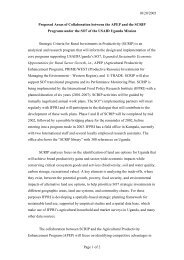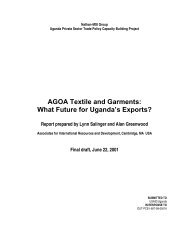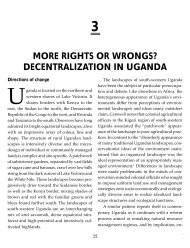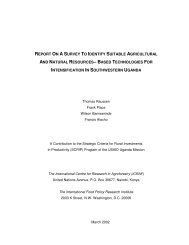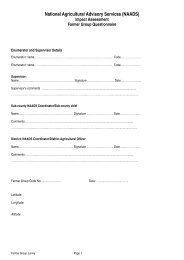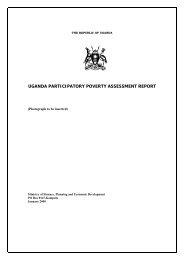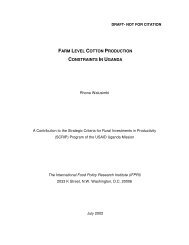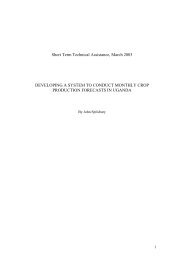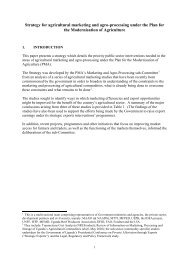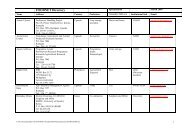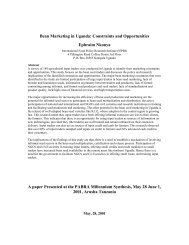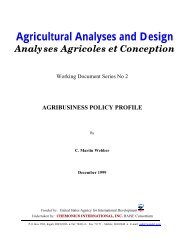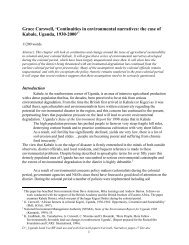Market Opportunities for African Agriculture - International Food ...
Market Opportunities for African Agriculture - International Food ...
Market Opportunities for African Agriculture - International Food ...
You also want an ePaper? Increase the reach of your titles
YUMPU automatically turns print PDFs into web optimized ePapers that Google loves.
impact on export earnings and incomes, given the declining trend of prices <strong>for</strong> these<br />
commodities.<br />
Traditional exports of all <strong>African</strong> countries, except <strong>for</strong> South Africa and Malawi,<br />
experienced negative global demand growth during 1995-99, and in some cases the<br />
declines were dramatic (Ng and Yeats, 2000). Empirical evidence suggests that the<br />
income elasticities of <strong>African</strong> traditional exports are well below unity. As such, continued<br />
reliance on traditional exports will significantly extend Africa’s marginalization in world<br />
trade. This trend could be reversed, or the rate of marginalization slowed, if Africa<br />
achieved major competitive gains <strong>for</strong> the traditional export commodities to compensate<br />
<strong>for</strong> their relatively low demand growth. However, a recent analysis of Africa’s supply<br />
capacities found no evidence that these competitive gains were occurring (Ng and Yeats,<br />
2002).<br />
a. Terms of Trade of Traditional Agricultural Exports<br />
Fluctuations in the relative prices of coffee and cocoa are a major cause of the<br />
poor per<strong>for</strong>mance of traditional exports. While the overall trend during the past two<br />
decades was downward, there were ephemeral surges in commodity prices and terms of<br />
trade. World commodity markets experienced a major price cycle starting in 1993. The<br />
upward phase of this price cycle lasted two to five years depending on the commodity<br />
(UNCTAD, 2001). The commodity terms of trade, calculated on the basis of world prices<br />
of broad categories of primary commodities (agricultural raw materials, food, tropical<br />
beverages, vegetable oilseeds and oils, and minerals and metals), as well as prices of<br />
<strong>African</strong> coffee, cocoa, cotton, and copper exports, vis-à-vis unit export prices of<br />
manufactures of developed countries reflect a more volatile pattern than the overall terms<br />
of trade <strong>for</strong> Africa.<br />
b. Trade Restrictions on Traditional Exports<br />
While Africa generally maintained its ability to compete with other <strong>for</strong>eign<br />
suppliers of most traditional goods, a related question concerns the importance of<br />
government-imposed trade restrictions, which place Africa in competitive disadvantage.<br />
15


